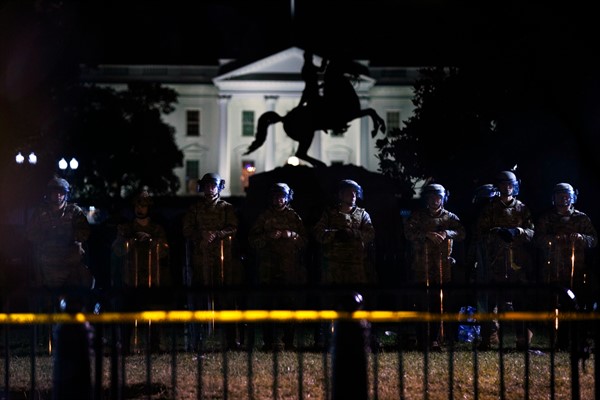It is hard to pinpoint the exact moment when this feeling of suffocation began. For so many born and raised here in Washington, D.C., it probably began early in life when their parents sat them down for “the talk,” about how to comport themselves safely during encounters with the police. But for me, the air in Washington became almost unbreathable on Monday when I saw Gen. Mark A. Milley, the chairman of the Joint Chiefs of Staff, striding along Lafayette Square in his battle fatigues as helicopters in the sky above my neighborhood roared westward across Capitol Hill to the White House.
I could not help but flash back this week to the five years I spent living and working in Kabul. The last time I’d heard so many helicopters swarming overhead was when Donald Trump’s predecessor, Barack Obama, swooped into the Afghan capital surreptitiously, under the cover of night, to sign a strategic partnership agreement with Afghanistan’s then-president, Hamid Karzai. It was May 2012, almost one year to the day that a team of U.S. Navy Seals flew across the Afghan-Pakistani border to kill Osama bin Laden. I don’t think anyone could have predicted then that just a few years later, the president of United States would declare his own countrymen insurrectionists, or that the secretary of defense would refer to the streets of America as “the battlespace.”
Born to a black father and raised by a single white mother on both the South Side and the North Side of Chicago during the 1970s, I never really had “the talk.” I just stumbled through the lessons of living while black in the face of police brutality the hard way. I also learned a lot about the mechanics of American policing, in part from my uncle, a white suburban cop. All that drove me to become a police reporter and later, after watching the World Trade Center collapse on 9/11, fueled my desire to cover America’s foreign wars. I have ridden in many a police cruiser, flown in many a Blackhawk and witnessed not a few bombings in my lifetime. I have seen executions in Virginia’s death chamber, documented the trials of so-called enemy noncombatants at the U.S.-run detention center in Bagram, outside Kabul, and I’ve marched alongside American soldiers in the moonlight in Taliban country in Kunduz, Kandahar and Nangarhar.

